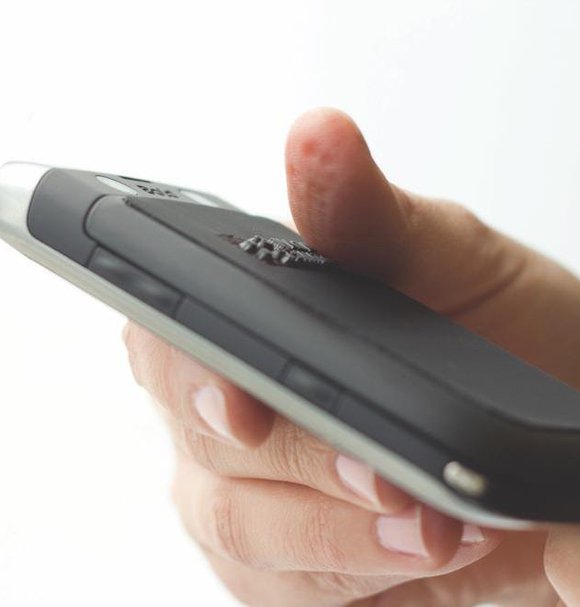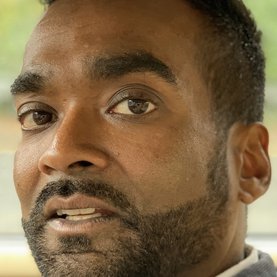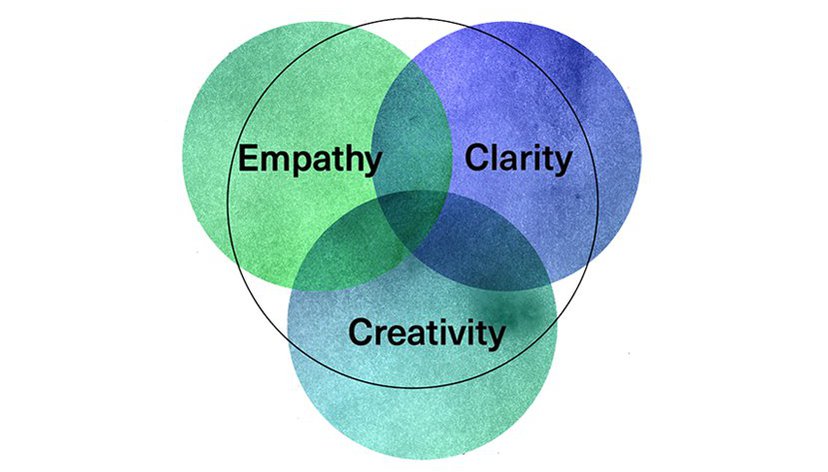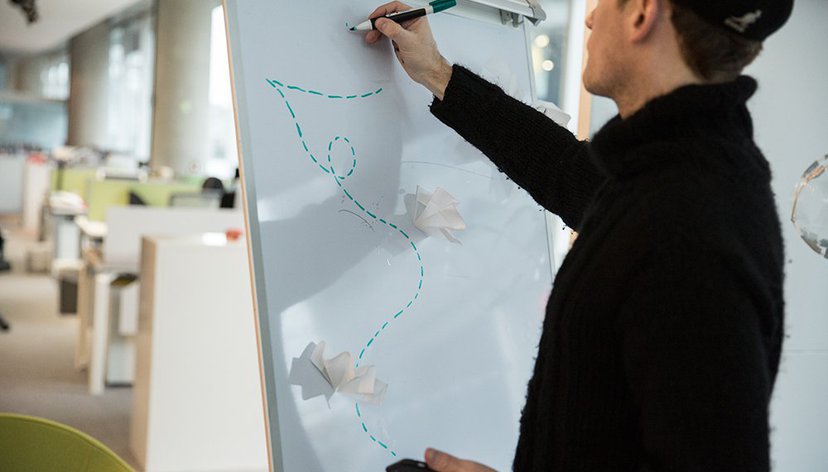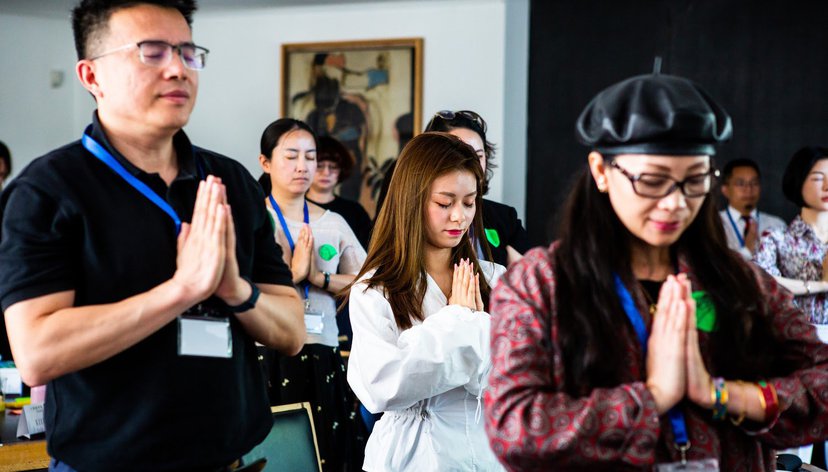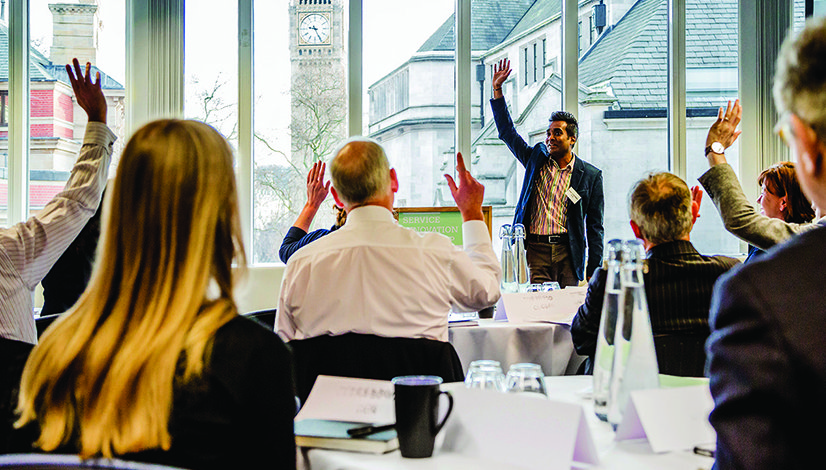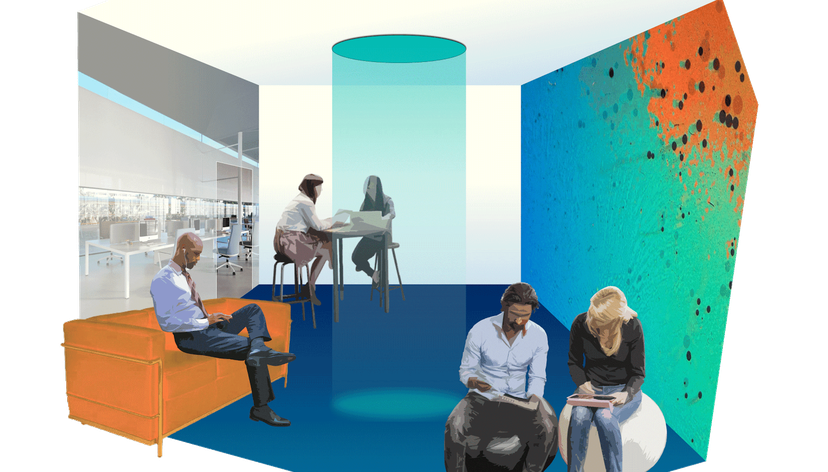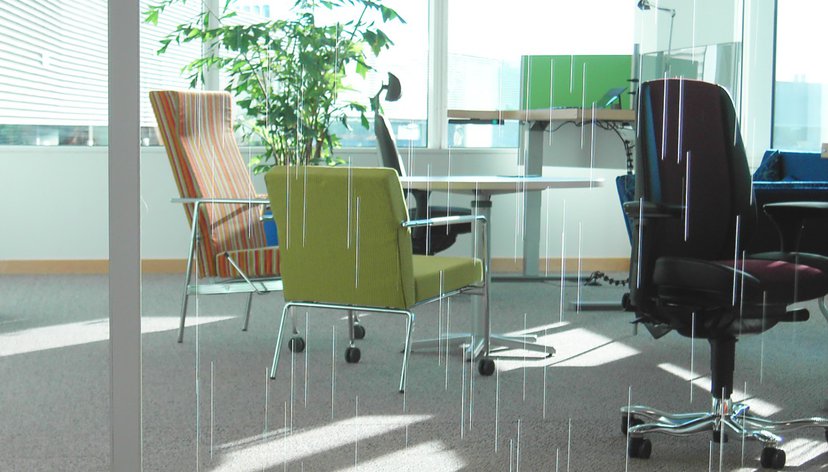Inclusive Design for Business Impact
Jump to
How can Inclusive Design processes directly impact and influence business and industry?

Fashioning Technology: industry collaboration with Blackberry (2010), Clara Gaggero
Vision
A core philosophy for the Centre over the last 30 years has been to conduct Inclusive Design projects that improve people’s lives. Working with companies across industry sectors has been key, to enable translation of research and inclusive thinking into real-world applications.
The Inclusive Design for Business Impact area (IDBI) formalises this ambition to deliver people-centred research and projects for industry and commerce. We apply inclusivity thinking, collaborative values and design practice to help businesses achieve the impact they are seeking to create – internally for their staff, leadership and stakeholders, and externally for their user, customer and client groups.
Key themes
IDBI operates in the areas of technology, innovation, the workplace, finance and wellbeing among others, and focuses its delivery in four key themes.
People: focuses on executive education, capacity building workshops, and Creative Leadership research.
Process: reimagines performance indicators in the new business landscape, and looks to align organisational values, processes and management practices with individual aspirations.
Technology: partners cutting-edge developments across the field, e.g., in areas of AI, robotics, mobile technologies, finance and energy provision, to help design creatively-leading, people-centred and sustainable solutions.
Place: advances human experience and engagement in the blend of physical and digital lifescapes in the 21st century, building on the extensive legacy of projects in workplace and wellbeing, pioneered by HHCD co-founder Prof Jeremy Myerson.

Concept visualisation for workplace design solutions to support wellbeing and performance, Juliette Poggi
Delivery across this impact area is underpinned by our original research on Creative Leadership.
How we work
We offer a portfolio of engagement types – from smaller, experimental projects and design sprints, to long-term, international, multi-partner research collaborations – that create value for the organisation, for individual employees, client and user groups, and for industries at large.
We work co-creatively with the project partner, to ensure inclusive processes are followed through from brief development to delivery of outcomes.

Prototyping new solutions for sustainable energy (2018). Images courtesy of Karolina Raczynska
With thousands of designers and non-designers being trained in Inclusive Design, Design Thinking and Creative Leadership, Executive Education and Knowledge Exchange are a core delivery focus. These activities are important in translating the work of the Centre into active projects and into the bloodstream of companies, consultancies and organisations.

RCA Creative Leadership Masterclass, 2019, Photographer Adam Hollingworth
Creative Leadership
Founded by HHCD Director Rama Gheerawo, Creative Leadership is an original model of leadership and innovation that underpins the Impact Area.
Creative Leadership enables its practitioners with the capabilities to face the volatility, ambiguity, complexity and uncertainty of our 21-st century world, and to address the emergent need for new models of innovation required in the post-Covid recovery.
Delivery to date includes:
- Creative Leadership Masterclasses, hosted by the Royal College of Art and attended by leaders across the creative industries, technology companies, and academics (May & November 2019)
- Open Masterclass held in Hong Kong as part of Knowledge of Design Week (June 2019)
- Bespoke Design Thinking and Creative Leadership programme for TCS Client Account Managers hosted at The Helen Hamlyn Centre for Design (February 2019)
- Workshop delivered at DMI: Design Leadership Conference for business, design and innovation leaders, hosted by the Design Management Institute in Boston, USA (October 2018)
- Workshop delivered at Innovation for All 2018 for businesses and public sector, hosted by Design and Architecture Norway (DOGA) in Oslo.
Projects and partners
Resilience
This project is a pathfinder collaboration between The Helen Hamlyn Centre for Design (HHCD) at London’s Royal College of Art and smartphone technology company OnePlus. The overall aim of the project was to open up visionary thinking, new design directions, and opportunity areas for OnePlus around the theme of ‘Resilience’.
Air-Control-Reimagined
An international multi-partner collaboration which built on our long-standing relationship with TATA Consultancy Services. This involved working with a major international airline to look at how the employee experience can be improved in terms of well-being and health alongside key performance indicators such as efficiency. This balances a customer-focus with a need to make the environment, digital tools and working lives of all employees more positive.
Welcoming Workplace
A major study exploring the design of office space for an ageing workforce in the 21st century knowledge economy, funded by the Arts and Humanities Research Council (AHRC) and the Engineering and Physical Sciences Research Council (EPSRC) as part of their Designing for the 21st Century initiative. The project addressed two key trends in the working world: the ageing of the workforce and the rise of a knowledge-based economy. Responding to the emerging requirements of older knowledge workers, the Welcoming Workplace project looked at older workers occupying various positions in three ‘knowledge industries’ (pharmaceuticals, technology and financial services) in the UK, Japan and Australia.
Bespoke Executive Education for Panasonic
An ongoing relationship with Panasonic through three separate four-day executive education sessions which explored topics such as new technologies and energy, framed by inclusive people-centred approaches developed at the Centre. The training component delivered extensive interactive sessions on the topics of Creative Leadership, Inclusive Design and Design Thinking. These sessions not only provided training for over 30 staff members of Panasonic on cutting edge methodologies and global trends, but also generated inclusive strategies that were then used to explore and generate future visions and concepts around selected themes of interest to Panasonic. The training and design outputs from these sessions are being further developed by attendees back in Japan.
Read more about Pathfinder projects at HHCD.

Bespoke executive education programme on technology and energy futures for Panasonic (2018), Image courtesy of Ben Garfield
Staff

Ivelina Gadzheva
Design Researcher
Ask a question
Get in touch to find out more about Inclusive Design for Business Impact and partnering on projects.
ninela.ivanova@rca.ac.uk
